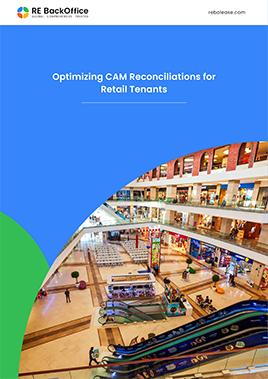
Fire alarm systems are essential for ensuring the safety of occupants in any building, especially in commercial real estate properties like shopping centers. These systems are designed to notify building occupants to evacuate in the event of a fire or other emergencies, making their proper functioning a critical aspect of property management and lease agreements.
Responsibilities and Obligations
When drafting lease agreements for shopping centers, it is crucial to clearly define the responsibilities associated with the installation, maintenance, monitoring, and repair of fire alarm systems. This clarity helps prevent disputes between landlords and tenants and ensures that fire safety measures are consistently upheld.
Installation
The initial installation of fire alarm systems should comply with all relevant local and national fire safety regulations. The lease agreement must specify who is responsible for the installation costs—whether it is the landlord or the tenant. Typically, landlords bear the installation costs, as they own the property and are responsible for its overall safety compliance.
Maintenance
Regular maintenance of fire alarm systems is essential to ensure they function correctly during an emergency. The lease agreement should specify the maintenance schedule and designate the party responsible for these tasks. Often, landlords take on this responsibility to maintain control over the compliance and reliability of the fire alarm systems. However, tenants may also be required to perform regular checks and report any issues immediately.
Monitoring
Continuous monitoring of fire alarm systems is vital for early detection and prompt response to emergencies. The lease should outline who is responsible for the monitoring services, including the costs associated with these services. Landlords usually handle the monitoring aspect, engaging professional monitoring companies to ensure 24/7 surveillance and quick action when alarms are triggered.
Repairs and Rectification
In the event of malfunctioning fire alarm systems or extinguishers, immediate repairs are necessary to maintain safety standards. The lease agreement must state the procedures for reporting issues and the timeline for repairs. Landlords typically oversee the repair process to ensure that qualified professionals handle the repairs, thereby maintaining the integrity of the fire safety systems.
Permits and Inspections
Obtaining the necessary permits and scheduling regular inspections are critical components of fire safety compliance. The lease agreement should specify:
- Who is responsible for obtaining permits: Usually, landlords handle permits as they pertain to the property as a whole.
- Who schedules and pays for inspections: This can vary, but landlords often manage and pay for inspections to ensure compliance with safety regulations.
Regular Inspections
Regular inspections of fire alarm systems and extinguishers are necessary to ensure they are operational and meet safety standards. These inspections should be conducted by certified professionals and documented properly. The lease should outline:
- Frequency of inspections: Typically, inspections are done annually or as required by local laws.
- Responsibility for conducting inspections: Landlords generally take charge of this to maintain consistent safety standards across the property.
Immediate Actions in Case of Malfunction
If fire alarm systems or extinguishers are found to be malfunctioning, immediate action is required. The lease agreement should detail the process for:
- Reporting malfunctions: Tenants should report any issues promptly to the landlord.
- Inspecting reported issues: Landlords should arrange for immediate inspection by professionals.
- Rectifying the problems: Quick repairs or replacements should be undertaken to restore full functionality of the fire safety systems.
Ensuring the proper functioning of fire alarm systems in shopping centers is a shared responsibility that must be clearly defined in lease agreements. By specifying the duties related to installation, maintenance, monitoring, and repair, as well as the processes for obtaining permits and conducting regular inspections, both landlords and tenants can contribute to a safe environment for all occupants. Regular communication and adherence to the lease terms will help in maintaining effective fire safety systems, thereby protecting lives and property.


